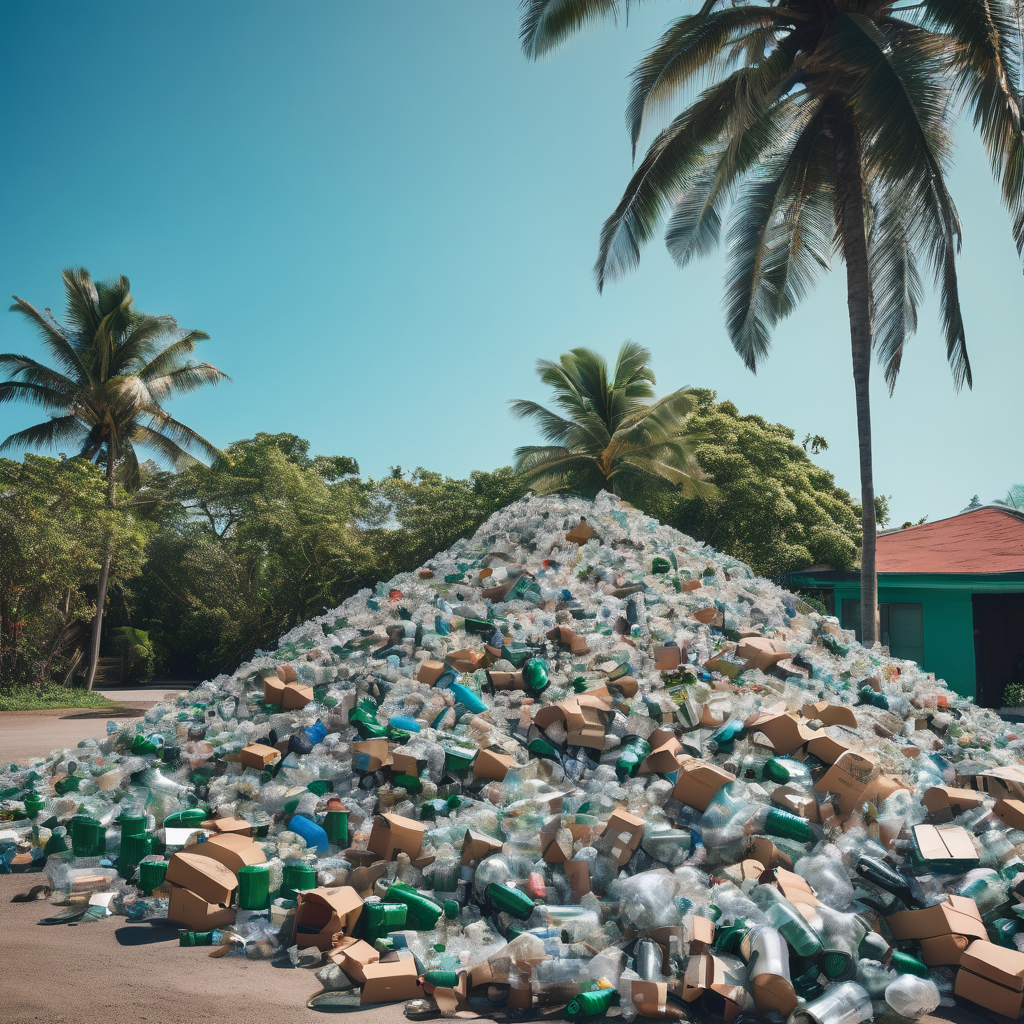Fiji has experienced a surge in its solid waste production, reaching an unprecedented 200,000 tonnes in 2024, the highest in five years. However, the country’s recycling efforts remain minimal, with less than one percent of this waste being recycled, according to newly released data from the Fiji Bureau of Statistics (FBS). The alarming figures were highlighted in the Experimental Environmental Account for Solid Waste 2024.
Analysis showed that a vast majority of the waste, about 72.4%, is sent to landfills, while 27.4% is incinerated. Only a tiny fraction, approximately 0.2%, or 477 tonnes, was recycled, depicting a waste management crisis amid Fiji’s ongoing development. In comparison to 2023, waste generation increased by 8,875 tonnes, largely from household and commercial sources, accounting for 83.8% of the total waste.
The increase is primarily due to a rise in general and special waste, indicating that population growth and economic activities are pushing consumption and disposal rates beyond sustainable levels. From an economic perspective, manufacturing emerged as the top waste producer, contributing 25,696 tonnes, followed by transport and storage, wholesale and retail sectors. However, households were the largest contributors, generating nearly 40% of the total waste.
Despite ongoing government and community initiatives promoting waste sorting at the source, Fiji’s recycling rate has stagnated at 0.2% over the past five years. Factors such as limited recycling infrastructure and inconsistent collection systems outside major towns, alongside a lack of incentives for proper waste management, contribute to this challenge. With most waste ending up in the Naboro landfill near Suva and the Vunato disposal site in Lautoka, emissions from incineration of hazardous materials also raise environmental concerns.
The government acknowledges the severity of the issue and is advocating for enhanced recycling facilities, increased composting of organic waste, and stricter regulations on single-use plastics. Pilot schemes like the proposed container deposit scheme aim to provide financial incentives to encourage recycling, while civil society groups stress the importance of education and mindset change to improve waste management practices.
The data presented by the FBOS is the first of its kind attempt to systematically track waste generation and disposal in Fiji. While the current situation poses a significant challenge, there is potential for substantial improvement through collaborative efforts and strategic policy implementation. Fiji stands at a crucial juncture, where its actions could set a precedent for sustainable waste management, potentially turning its crisis into a model for future environmental stewardship.
